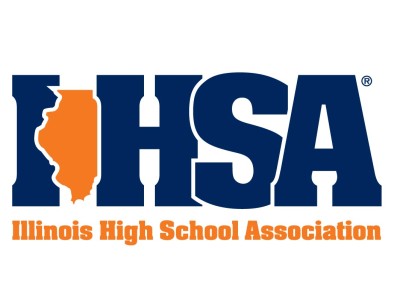Illinois High School athletes got good news yesterday. The Illinois High School Association Board of Directors has approved Return to Play Guidelines developed within the current structure of Govenor J.B. Pritzker’s Restore Illinois plan.
The Return to Play Guidelines were developed by the IHSA Sports Medicine Advisory Committee and have been approved by the Illinois Department of Public Health. IHSA Executive Director Craig Anderson said in a press release yesterday that the guidelines provide an important first step in allowing student-athletes to proceed and for schools to assess if and when they want to proceed with a return to athletic competition.
An IHSA member high school may not conduct workouts under the Return to Play Guidelines unless they have local school district approval, and are located in a Health Region that is currently in Phase 3 (or better) under the governor’s Restore Illinois plan. Any school within a Phase 3 Region of the state could begin to implement the Return to Play Guidelines on June 6th.
The Return to Play Guidelines are aimed at student-athlete acclimatization and general physical fitness, and will not include any skill of sport training elements. The guidelines detail the allowable activities for student-athletes and coaches, as well as the safety precautions and social distancing that must be adhered to in order to maximize safety.
The guidelines are as follows in summary: They encourage outdoor workouts versus indoor training. Students are limited to 3 hours of participation per day. Strength and conditioning sessions must follow all CDC social distancing guidelines with groups of 10 or less pre-determined by a coach or leader of the session. Once workout groups are determined, students are not allowed to switch groups, with students who are a part of multiple sports grouped in with their primary Fall sport. Sports specific drills and equipment are prohibited. Coaches and staff have been instructed to receive training and be diligent about cleaning and disinfecting equipment. Coaches also must maintain a daily record of what athletes are doing and when as well as any possible symptoms they may present. Health screenings should be done prior to any team activities on all athletes. Free weight activities that require a spotter cannot be performed. The use of locker rooms, shared water coolers with cups, and water fountains will be prohibited during this stage. Athletes are encouraged to bring their own water bottles, shoes, towels, and other personal equipment. If available, it is encouraged that an Athletic Trainer or medical personnel be available for workouts. Coaches have also been provided with a form checklist to check athletes and coaches for symptoms daily.
IHSA says the process may change at any time should conditions warrant it and that coaches, administration, and athletes should check IHSA.org for any further updates as well as the IHSA’s social media platforms.


